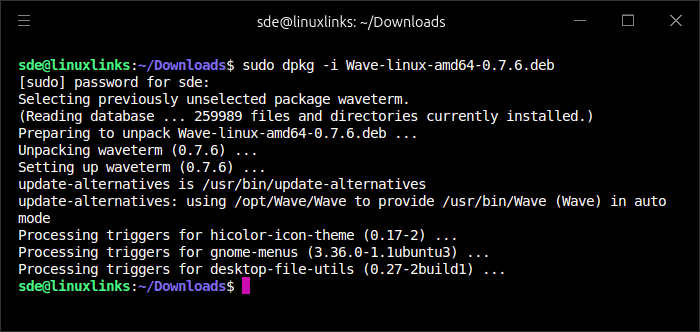The terminal window allows the user to access a console and all its applications such as command line interfaces (CLI) and text user interface software. Even with the sophistication of modern desktop environments packed with administrative tools, other utilities, and productivity software all sporting attractive graphical user interfaces, it remains the case that some tasks are still best undertaken with the command line.
Wave Terminal is an AI-native terminal built for seamless workflows. It’s free and open source software.
Installation
We tested Wave Terminal on a variety of Linux distributions including Ubuntu, Manjaro, and Fedora.
The project provides packages for Debian/Ubuntu, Fedora, and Arch. There’s also an AppImage which means you’ll be able to install the software whatever distribution you use.
AppImage is a universal software format for distributing portable software on Linux without needing superuser permissions to install the application. AppImage doesn’t really install software. It’s a compressed image with all the dependencies and libraries needed to run the desired software.
In Ubuntu, we downloaded the deb package from the project’s home page and installed it with the command:
$ sudo dpkg -i Wave-linux-amd64-0.7.6.deb

Next page: Page 2 – In Operation and Summary
Pages in this article:
Page 1 – Introduction and Installation
Page 2 – In Operation and Summary

